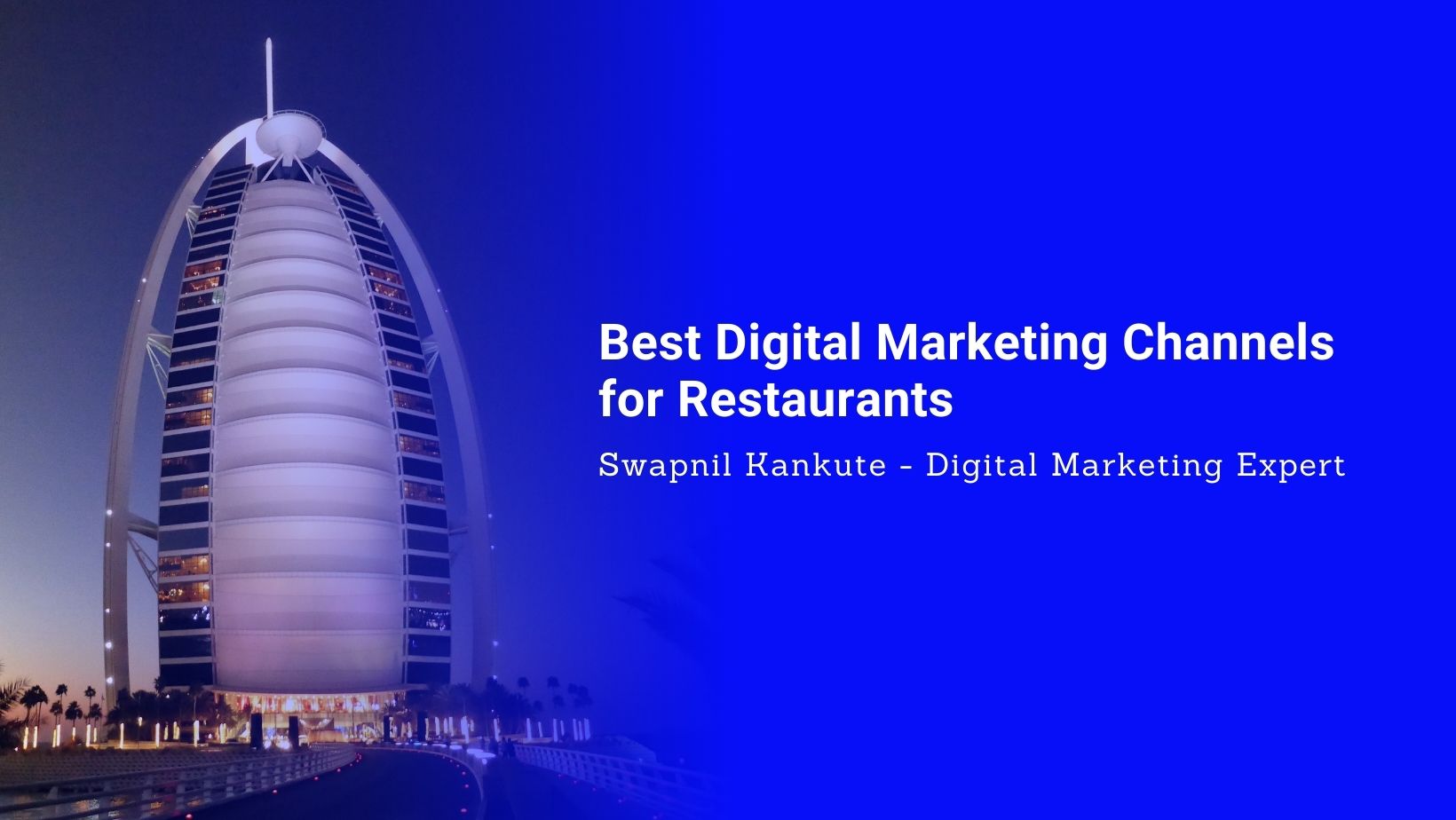In today’s competitive restaurant landscape, effective digital marketing is essential for attracting and retaining customers. With numerous channels available, it’s crucial to identify which ones will best serve your restaurant’s goals. This blog explores the best digital marketing channels for restaurants, helping you reach your audience and drive more business.
Table of Contents
ToggleWhy Digital Marketing Matters for Restaurants
- Increased Visibility: Digital marketing helps your restaurant reach a wider audience through online platforms.
- Customer Engagement: Engaging with customers online fosters loyalty and builds community.
- Cost-Effective Advertising: Digital channels often offer more affordable advertising options compared to traditional media.
Top Digital Marketing Channels for Restaurants
1. Social Media Marketing
Platforms to Use: Facebook, Instagram, Twitter, and TikTok.
Why It Matters: Social media allows restaurants to showcase their dishes, share behind-the-scenes content, and interact with customers. Regular posts and engaging stories can enhance brand loyalty and drive traffic.
2. Search Engine Optimization (SEO)
Focus Areas: Local SEO, keyword optimization, and Google My Business.
Why It Matters: Optimizing your website for search engines increases visibility when potential customers search for restaurants in your area. Local SEO ensures that your restaurant appears in local searches, driving foot traffic and reservations.
3. Email Marketing
Strategies to Use: Newsletters, promotional offers, and event announcements.
Why It Matters: Email marketing enables restaurants to communicate directly with customers. Sending personalized emails about specials, events, and loyalty programs can drive repeat visits and bookings.
4. Google Ads and PPC Advertising
What to Use: Search ads, display ads, and retargeting campaigns.
Why It Matters: Pay-per-click (PPC) advertising can boost your restaurant’s visibility in search results. Targeted ads can attract specific demographics, such as local food enthusiasts or tourists looking for dining options.
5. Influencer Marketing
Approach: Partner with local food influencers and bloggers.
Why It Matters: Collaborating with influencers can enhance your restaurant’s credibility and reach. Influencers can showcase your menu items, share reviews, and attract their followers to your establishment.
6. Online Review Platforms
Key Platforms: Yelp, TripAdvisor, Google Reviews.
Why It Matters: Encouraging customers to leave reviews on platforms like Yelp and TripAdvisor can significantly impact your restaurant’s reputation. Responding to reviews—both positive and negative—shows that you value customer feedback and helps build trust.
7. Content Marketing
Types of Content: Blog posts, recipe videos, and how-to guides.
Why It Matters: Creating valuable content can position your restaurant as an authority in the culinary space. Sharing recipes or cooking tips can engage customers and encourage them to visit your restaurant for an authentic experience.
8. Website Optimization
Focus Areas: User-friendly design, mobile responsiveness, and easy navigation.
Why It Matters: Your website is often the first impression potential customers have of your restaurant. An optimized website with essential information (menu, location, hours) and a simple reservation system can improve user experience and increase bookings.
9. Online Reservations and Ordering
Platforms to Use: OpenTable, Resy, and food delivery apps like UberEats or DoorDash.
Why It Matters: Offering online reservations and delivery options caters to customers’ preferences for convenience. These platforms can help you reach a broader audience and increase sales.
10. Video Marketing
What to Create: Behind-the-scenes videos, chef interviews, and food preparation clips.
Why It Matters: Video content can captivate your audience and showcase your restaurant’s personality. Platforms like YouTube, Instagram, and TikTok are excellent for sharing engaging video content that highlights your culinary offerings.
Conclusion
Digital marketing is vital for restaurants looking to thrive in a competitive market. By utilizing channels such as social media, SEO, email marketing, and influencer partnerships, you can effectively engage with your audience and drive traffic to your restaurant.
As a certified digital marketing expert, I recommend that restaurants adopt a multi-channel approach to maximize their reach and effectiveness. By leveraging the right digital marketing channels, you can enhance your restaurant’s visibility and boost your bottom line.



